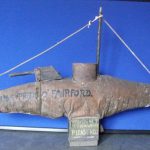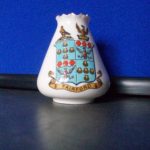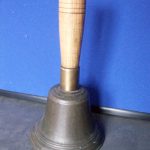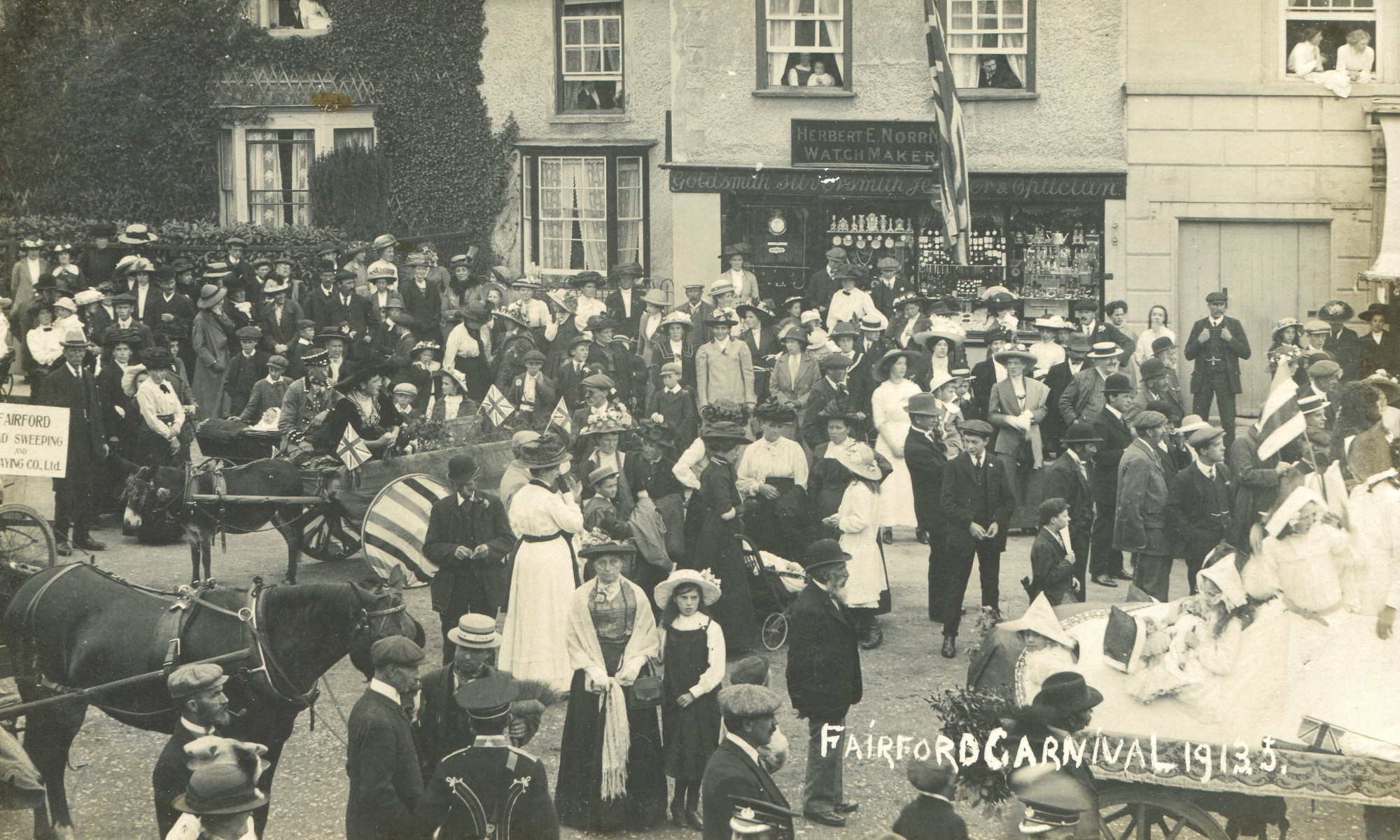Since 2004 FHS has been collecting information about Fairford’ s history. In 2008 we obtained a designated space in the refurbished Community Centre, which is a room on the top floor front of the building. It was appropriate as the north facing window contains some of the original 18th century glass.
 The collection contains anything relating to Fairford’s history, not only books and paperwork but also objects e.g. the Fairford ‘Wane’ brick, a collection box in the form of a WW2 submarine, Fairford mugs, presentation cups, pictures and items collected by June Lewis from Fairford, Manitoba etc. etc.
The collection contains anything relating to Fairford’s history, not only books and paperwork but also objects e.g. the Fairford ‘Wane’ brick, a collection box in the form of a WW2 submarine, Fairford mugs, presentation cups, pictures and items collected by June Lewis from Fairford, Manitoba etc. etc.
FHS is always pleased to accept donations, large or small. We have a collection of oral CD memories, unfortunately we have nobody to organise this at the moment. However, we are very ready to accept written memories of Fairford, this is the local history that will be lost in the future. If you would like to talk to someone about your memories so that they can be written down, please contact us.
We always try to help with family history enquiries. All the parish registers, wills  and inventories
and inventories
are online www.ancestry.co.uk, other researchers have deposited their information with us so sometimes we are able help and to put distant relatives in contact with each other.
The FHS Archive Room is open on Monday afternoons 2-4 we are always pleased to see visitors then or please contact FHS by phone or email if that time is not convenient.

 The Society has been very fortunate to have been donated a unique historical document relating to Fairford property and people of the 18th and 19th centuries. The foolscap-size notebook is titled “Lifehold Estates belonging to John Raymond Barker Esq” and was donated to the Society by a Fairford resident, whose late husband once worked for the Ernest Cook Trust. The 46-page document records the creation and renewals of leases relating to John Raymond Barker’s property in Fairford, the earliest being dated 1768 and the latest 1884. Over 120 leases are recorded and the details given add greatly to our knowledge of Fairford’s residents and property ownership during the Barker and Raymond Barker family’s time as landlords. Some of the entries are quite revealing; for example the entry for Jonathan Wane’s lease of a house in Milton End on 26 May 1803 gives him the option of paying either four shillings for rent, or just one shilling and “2 couple of fat hens”. In fact poultry seems to have been an alternative form of currency in the 19th Century as six other lessees were given the option of paying part of their rent in chickens!
The Society has been very fortunate to have been donated a unique historical document relating to Fairford property and people of the 18th and 19th centuries. The foolscap-size notebook is titled “Lifehold Estates belonging to John Raymond Barker Esq” and was donated to the Society by a Fairford resident, whose late husband once worked for the Ernest Cook Trust. The 46-page document records the creation and renewals of leases relating to John Raymond Barker’s property in Fairford, the earliest being dated 1768 and the latest 1884. Over 120 leases are recorded and the details given add greatly to our knowledge of Fairford’s residents and property ownership during the Barker and Raymond Barker family’s time as landlords. Some of the entries are quite revealing; for example the entry for Jonathan Wane’s lease of a house in Milton End on 26 May 1803 gives him the option of paying either four shillings for rent, or just one shilling and “2 couple of fat hens”. In fact poultry seems to have been an alternative form of currency in the 19th Century as six other lessees were given the option of paying part of their rent in chickens!